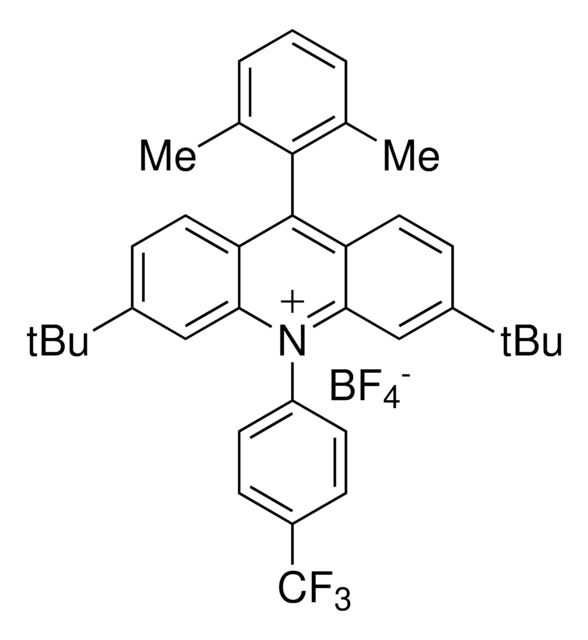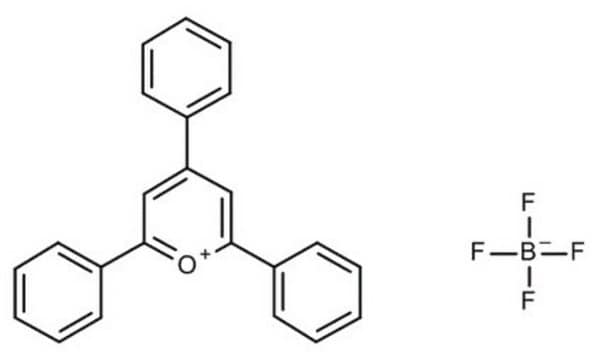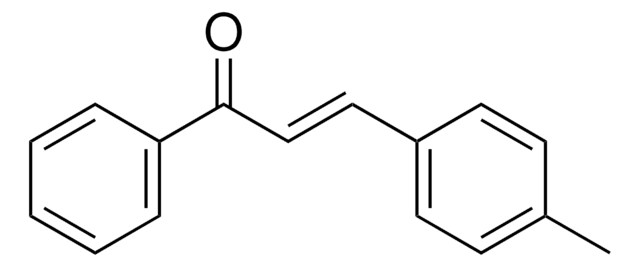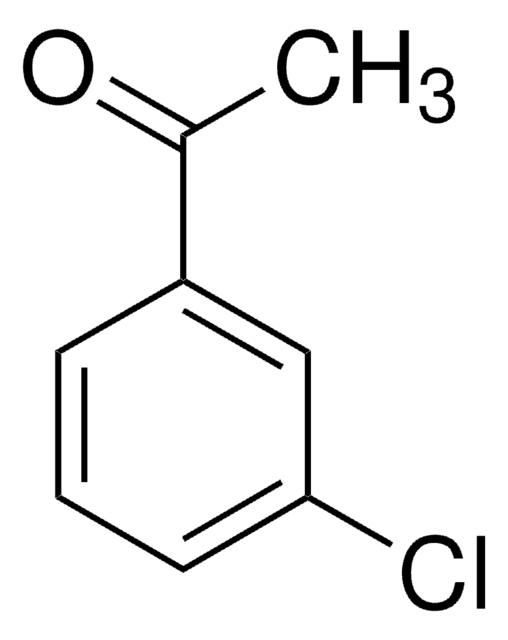900685
2,4,6-Tri(p-tolyl)pyrylium tetrafluoroborate salt
≥95%
Anmeldenzur Ansicht organisationsspezifischer und vertraglich vereinbarter Preise
Alle Fotos(2)
About This Item
Empirische Formel (Hill-System):
C26H23BF4O
CAS-Nummer:
Molekulargewicht:
438.26
UNSPSC-Code:
12161600
NACRES:
NA.22
Empfohlene Produkte
Qualitätsniveau
Assay
≥95%
Form
powder
Eignung der Reaktion
reagent type: catalyst
reaction type: Photocatalysis
mp (Schmelzpunkt)
298-303 °C
Verwandte Kategorien
Anwendung
Excitable by blue LEDs, this photocatalyst was reported by the Nicewicz laboratory for catalysis of O-aryl carbamothioates to S-aryl carbamothioates at ambient temperatures, an improvement from the elevated reaction temperatures traditionally needed in the Newman-Kwart rearrangment or palladium catalysis. Effective for scale-up or flow chemistry, this triarylpyrylium salt provides convenient access to thiophenols from phenols.
It can also catalyze visible light-initiated, living cationic polymerization of 4-methoxystyrene with methanol under metal-free conditions.
Product can be used with our line of photoreactors: Including Penn PhD (Z744035) & SynLED 2.0 (Z744080)
Product can be used with our line of photoreactors: Including Penn PhD (Z744035) & SynLED 2.0 (Z744080)
Ähnliches Produkt
Lagerklassenschlüssel
11 - Combustible Solids
WGK
WGK 3
Flammpunkt (°F)
Not applicable
Flammpunkt (°C)
Not applicable
Hier finden Sie alle aktuellen Versionen:
Analysenzertifikate (COA)
Lot/Batch Number
Die passende Version wird nicht angezeigt?
Wenn Sie eine bestimmte Version benötigen, können Sie anhand der Lot- oder Chargennummer nach einem spezifischen Zertifikat suchen.
Besitzen Sie dieses Produkt bereits?
In der Dokumentenbibliothek finden Sie die Dokumentation zu den Produkten, die Sie kürzlich erworben haben.
Kunden haben sich ebenfalls angesehen
Visible light photoinitiated metal-free living cationic polymerization of 4-methoxystyrene.
Perkowski A J, et al.
Journal of the American Chemical Society, 137(24), 7580-7583 (2015)
Unser Team von Wissenschaftlern verfügt über Erfahrung in allen Forschungsbereichen einschließlich Life Science, Materialwissenschaften, chemischer Synthese, Chromatographie, Analytik und vielen mehr..
Setzen Sie sich mit dem technischen Dienst in Verbindung.
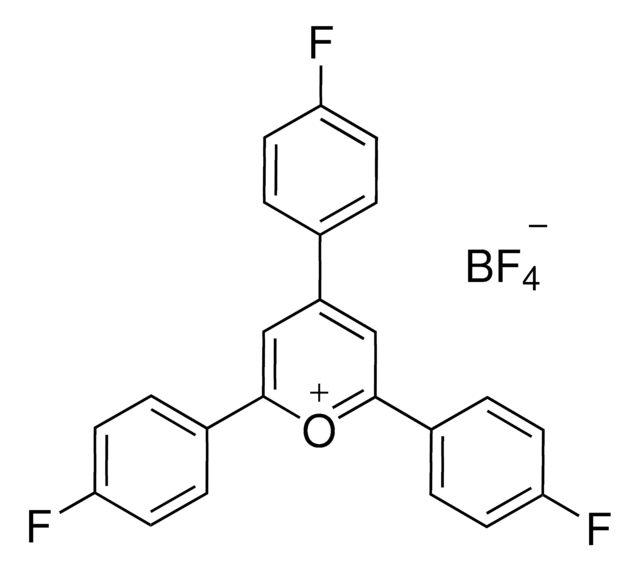



![[Ir(dFCF3ppy)2-(5,5’-dCF3bpy)]PF6 ≥95%](/deepweb/assets/sigmaaldrich/product/structures/422/901/e00f3148-fb86-4f94-9e79-21d064c3f327/640/e00f3148-fb86-4f94-9e79-21d064c3f327.png)
